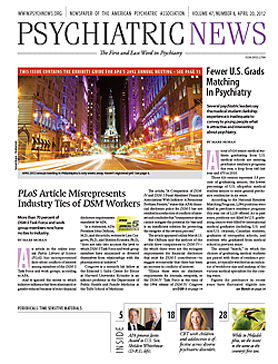One of the researchers who initially proposed that Group A streptococcal infections play a key role in the development of certain cases of pediatric obsessive-compulsive disorder (OCD) is suggesting a new diagnosis that focuses on acute onset of the disorder in some children, regardless of the etiologic trigger.
Susan Swedo, M.D., of the National Institute of Mental Health’s Pediatrics and Developmental Neuroscience Branch has cowritten a paper in the February 2 Pediatrics and Therapeutics recommending that pediatric autoimmune neuropsychiatric disorders associated with streptococcal infections (PANDAS) be considered a subset of a broader diagnosis dubbed pediatric acute-onset neuropsychiatric syndrome (PANS).
Following initial development of the PANDAS diagnosis in 1998, many physicians began identifying pediatric patients whose symptoms satisfied all of the proposed criteria except for the “temporal association between Group A streptococcal infection and symptom onset/exacerbations,” according to Swedo and her research collaborators James Leckman, M.D., of Yale University’s Child Study Center and Noel Rose, M.D., Ph.D., of Johns Hopkins School of Medicine’s Center for Autoimmune Disease Research.
The other criteria that must be met to make a diagnosis of PANDAS as currently defined include the presence of OCD or a tic disorder; prepubertal symptom onset; acute symptom onset with an episodic (relapsing-remitting) course; and association with neurological abnormalities, particularly motoric hyperactivity and choreiform movements.
In light of the increasing recognition of patients suspected of having PANDAS but lacking evidence of a preceding streptococcal infection, a group of physicians and researchers held a workshop in July 2010 focused on the presentation and discussion of data collected on more than 400 children and adolescents diagnosed with the disorder.
It was during this meeting that PANS was first proposed, as the physicians in attendance unanimously agreed that the “key clinical feature” of all cases considered was an acute onset of symptoms.
As described by Swedo and her colleagues, PANS would therefore serve as an overarching diagnosis for children with acute-onset OCD, encompassing cases with both infectious and noninfectious triggers.
Specifically, the researchers propose three diagnostic criteria for PANS:
Abrupt, dramatic onset of OCD or severely restricted food intake.
Concurrent presence of additional neuropsychiatric symptoms, with similarly severe and acute onset, from at least two of the following categories:
emotional lability and/or depression
irritability, aggression, and/or severely oppositional behaviors
behavioral (developmental) regression
deterioration in school performance
sensory or motor abnormalities
somatic signs and symptoms, including sleep disturbances, enuresis, or urinary frequency
Symptoms are not better explained by a known neurologic or medical disorder, such as Sydenham chorea, systemic lupus erythematosus, Tourette disorder, or others.
“The goal of the new PANS criteria is to attempt to define the clinical presentation of a relatively narrow group of patients in order to improve the comparability of research samples,” the researchers explained. “Given the breadth of potential etiologies for PANS, it will be essential for its clinical presentation to be as uniform and homogeneous as possible.”
In proceeding to develop and refine a new PANS diagnosis, the researchers call for both short- and long-term research studies, as well as clinical application of the proposed criteria.

